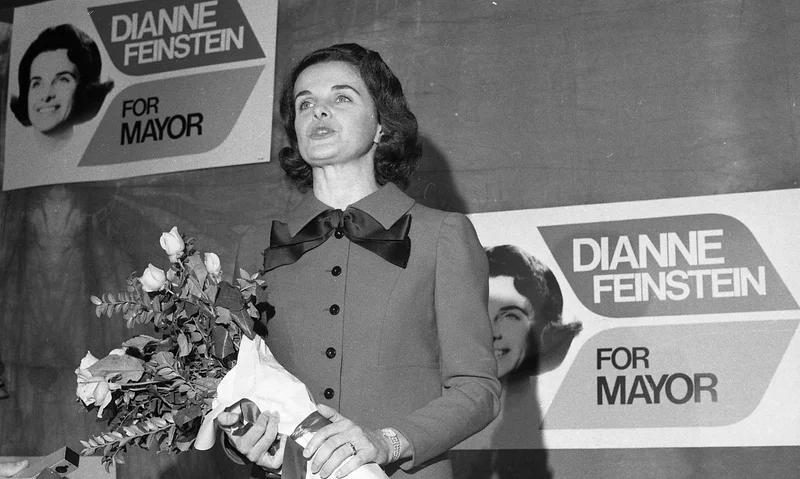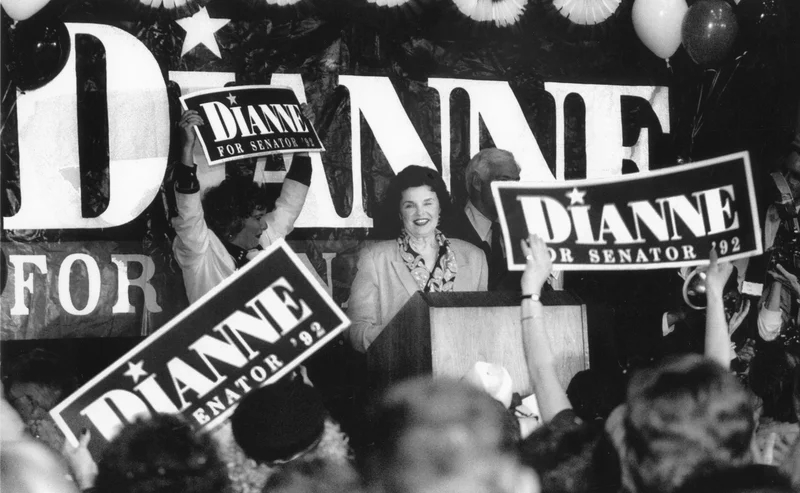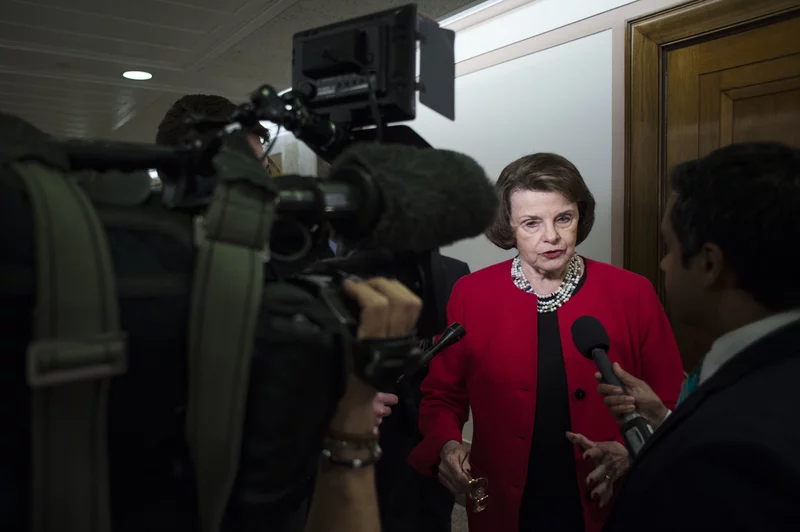Explore the illustrious life and career of Senator Dianne Feinstein, the longest-serving woman in the U.S. Senate. This comprehensive article delves into her early years, political rise, key accomplishments, and the lasting impact she had on American politics.
Senator Dianne Feinstein: A Trailblazer’s Legacy and Political Journey
The United States Senate lost one of its most prominent and enduring figures when Senator Dianne Feinstein passed away at the age of 90. As the longest-serving woman in the Senate, Feinstein’s remarkable political journey and unwavering commitment to public service deserve closer examination. In this comprehensive article, we will delve into her early years, her meteoric rise in politics, her key accomplishments, and the indelible mark she left on American politics and society.
From Childhood to Early Career
Dianne Emiel Goldman was born on June 22, 1933, in San Francisco, California. Her early years were marked by the influence of her parents’ divergent political leanings; her mother was a staunch Democrat, while her father identified as a Goldwater Republican. This familial political diversity would go on to shape Feinstein’s bipartisan approach to politics.

Feinstein’s educational journey took her to Stanford University, where she earned her bachelor’s degree in history in 1955. Following her graduation, she delved into the world of politics by working as a legislative assistant in Washington, D.C. This early exposure to the inner workings of government sparked her passion for public service.
A Turning Point: Tragedy Strikes San Francisco
The defining moment in Feinstein’s early political career occurred on November 27, 1978, when her beloved city, San Francisco, was shaken by a devastating tragedy. As the president of the San Francisco Board of Supervisors, Feinstein was thrust into the national spotlight when she had to deliver the heartbreaking news to the public. Two political assassinations had occurred at City Hall: Mayor George Moscone and Supervisor Harvey Milk had been shot and killed.
Feinstein’s poise and strength during this turbulent moment were evident as she addressed a stunned press corps, saying, “As President of the Board of Supervisors, it is my duty to announce that both Mayor Moscone and Supervisor Milk have been shot and killed.” With that announcement, she became the interim mayor, navigating the city through a period of intense grief and uncertainty.
Her role as interim mayor would evolve into a winning election and later re-election, with Feinstein serving as San Francisco’s mayor until 1988. Her leadership during this challenging time earned her respect and admiration as she helped San Francisco heal and recover from the shock of the assassinations.

Leadership in Crisis: Cementing Her Reputation
Former San Francisco Mayor Willie Brown, a long-time political ally of Feinstein’s, reflected on her handling of the assassinations crisis in 2022, stating, “It was a dramatic demonstration of how, in the face of total and complete disaster, somebody could stand up to settle the ship.” Feinstein’s ability to provide stability during this chaotic period left an enduring mark on her political legacy.
Championing Gun Control: A Defining Moment
Feinstein’s tenure as mayor was characterized by her steadfast commitment to progressive policies, including gun control. In the wake of the City Hall assassinations, she signed a local gun control ordinance, a move that drew the ire of a fringe gun rights organization known as the White Panthers.
The White Panthers, unhappy with Feinstein’s pro-growth, pro-business, and moderate policies, managed to collect enough signatures to place a recall of Feinstein on the ballot in 1983. However, their efforts proved unsuccessful, catapulting Feinstein into easy re-election later that year. Her resilience in the face of opposition solidified her reputation as a tenacious and principled leader.

Governance from the Center: Winning Support and Critics
As mayor, Feinstein governed from the political center, a stance that won her support from business groups, law enforcement unions, and the city’s more conservative voters. However, her moderate governing style often clashed with San Francisco’s more liberal activists.
In 1982, Feinstein vetoed legislation that would have allowed same-sex couples to form domestic partnerships, entitling them to city benefits and hospital visitation rights. She also refused to sign “comparable worth” legislation, which aimed to guarantee women equal pay to men in similar jobs. These decisions, while emblematic of her moderate approach, sparked controversy and criticism among more progressive constituents.
A Politician Shaped by Family: Bipartisanship in Action
Feinstein’s ability to bridge political divides and work across the aisle can be traced back to her family’s diverse political backgrounds. In a 2001 interview with C-SPAN, she explained, “My mother was a Democrat. My father was a Goldwater Republican. So we had a split family.” This upbringing instilled in her the value of open dialogue and compromise.
Achieving National Standing: The 1984 Democratic National Convention
Feinstein’s growing influence in American politics was highlighted when San Francisco hosted the Democratic National Convention in 1984. She graced the cover of Time magazine and found herself on the shortlist of potential running mates for presidential nominee Walter Mondale.
At the same time, the AIDS epidemic was ravaging San Francisco, and the federal government, under President Ronald Reagan, was largely ignoring the crisis. Dr. Paul Volberding, a physician at San Francisco General Hospital and a pioneer in AIDS treatment, often briefed Mayor Feinstein on the urgent need for resources to combat the disease.
Feinstein’s leadership was instrumental during this critical period. San Francisco, in the mid-1980s, was allocating more funding to combat AIDS than the entire federal government. Dr. Volberding remarked, “And that really goes to her leadership and is a great credit to her.” Feinstein’s ability to prioritize public health in the face of a national crisis foreshadowed her future advocacy for pressing national issues.
Election to the Senate: The “Year of the Woman”
In 1990, after leaving the mayor’s office, Feinstein ran for governor of California. While she narrowly lost to Republican Senator Pete Wilson, the political landscape would soon change dramatically during the Senate confirmation hearings of Supreme Court nominee Clarence Thomas in 1991.
When law professor Anita Hill accused Thomas of sexual misconduct, members of the Judiciary Committee, including Democratic Senator Howell Heflin of Alabama, questioned Hill’s integrity and motivation. Senator Heflin notably asked Hill, “Are you a scorned woman? Do you have a militant attitude relative to the area of civil rights?”
Feinstein seized on the widely criticized hearings as an opportunity to make her mark in the U.S. Senate. Campaigning in 1992, she voiced her platform, including writing a woman’s right to an abortion into federal law. She won the Senate seat, becoming part of the so-called “Year of the Woman,” which saw a historic number of women elected to Congress.
In Washington: Advocating for Gun Control and More
Once in Washington, Senator Feinstein continued her unwavering advocacy for gun control, even when faced with stiff opposition. She managed to pass a federal ban on assault weapons in 1994, a significant achievement that underscored her commitment to public safety.
However, her position on gun control was not without its challenges. In the same year, she faced a tough re-election battle, reflecting the polarizing nature of the issue. Nevertheless, Feinstein’s reputation as a diligent and principled legislator continued to grow.
A Voice Against Torture: The Senate Torture Report
In 2014, over objections from the Obama administration, Senator Feinstein took a bold step by releasing a comprehensive report on torture practices employed by the CIA following the September 11 attacks. Speaking on the Senate floor, she stated, “Releasing this report is an important step to restore our values and show the world that we are, in fact, a just and lawful society.”
The 500-page summary report, led by the Intelligence Committee chaired by Feinstein, provided stark details of the CIA’s mistreatment of prisoners, including methods such as waterboarding and sleep deprivation. Tom Blanton, head of the National Security Archive at George Washington University, lauded the investigation, stating that it made the intelligence community accountable. He declared that the Senate torture report was “probably the high point of Senator Feinstein’s entire Senate career.”
Late-Career Challenges: A Contested Path
In 2016, the election of Donald Trump put Feinstein’s brand of bipartisanship at odds with the evolving political climate within her own party. Many Democrats had hoped she would step aside to make way for a new generation of candidates. However, Feinstein surprised and even angered some within her party when she sought and won another 6-year term in 2018 at the age of 85.
Reports about apparent memory lapses raised questions about her continued effectiveness as a legislator. Nevertheless, her decision to stay in office was deeply personal. Jim Lazarus, a former aide, offered insights into her motivation, saying, “I just don’t think she could see what else to do on a daily, weekly, or monthly basis. She felt well enough, alert enough, and strong enough to serve.”
A Role Model for Women in Government
Dianne Feinstein’s legacy extends beyond her political achievements. She shattered glass ceilings by becoming San Francisco’s first female mayor. While she did not always align with feminist activists on every issue, she served as a trailblazer for women in politics.
Malia Cohen, who served on the San Francisco Board of Supervisors before being elected to the state Board of Equalization, fondly recalled meeting Feinstein on a third-grade field trip to City Hall. Feinstein had told her class that one of them could be mayor one day. Cohen expressed her gratitude, saying, “I believe that I’m standing on her shoulders. And I wouldn’t be here without her leadership.”
A Fond Farewell
In her later years, Feinstein faced health challenges, including a serious bout of shingles that forced her to miss nearly 100 votes while she recovered at home in San Francisco. When she returned to Washington almost three months later, she appeared even more frail, with lingering side effects from shingles that limited her ability to work.
However, her dedication to public service remained unwavering. Feinstein’s legacy as a woman who led her city through moments of extraordinary grief and became an effective champion for important national issues in the U.S. Senate will endure for generations to come.
Senator Dianne Feinstein’s passing leaves a void in American politics, but her legacy lives on as an enduring testament to the power of leadership, resilience, and bipartisanship. From her early years, marked by family influences, to her steadfast leadership in times of crisis and her relentless advocacy for crucial national issues, Feinstein’s impact on American politics is immeasurable.
Her journey from San Francisco’s mayorship to becoming the longest-serving woman in the U.S. Senate serves as an inspirational tale for aspiring politicians, particularly women, across the nation. Senator Dianne Feinstein’s legacy will continue to inspire and shape the future of American politics, ensuring that her contributions are never forgotten.
also read Michael Gambon
